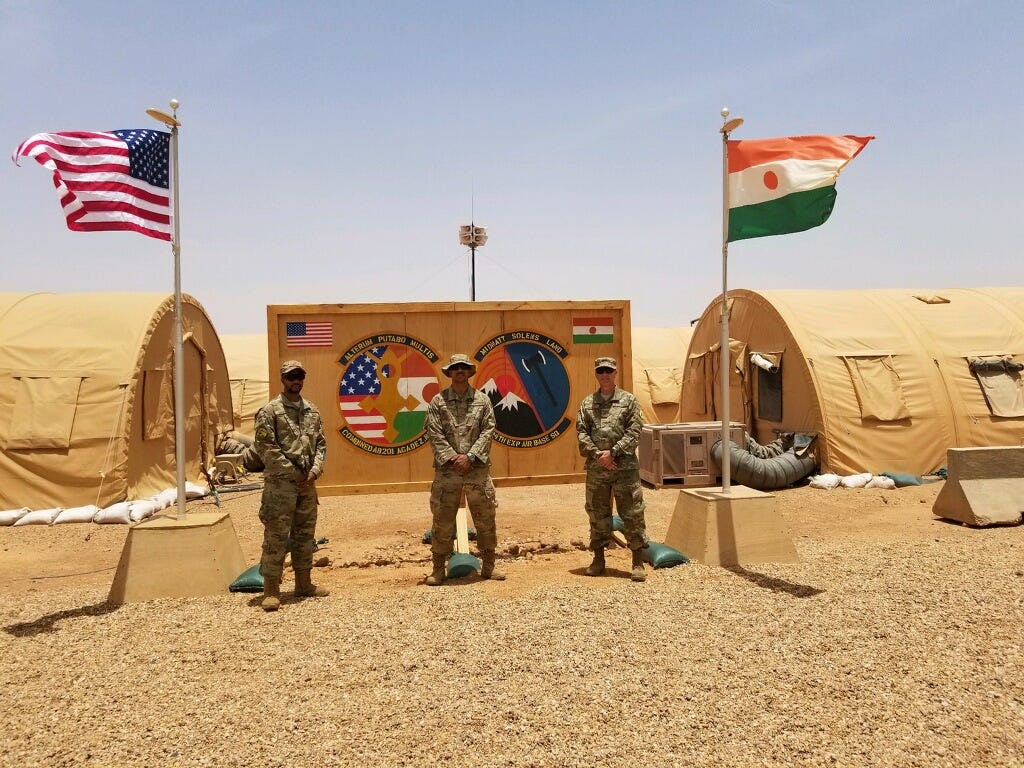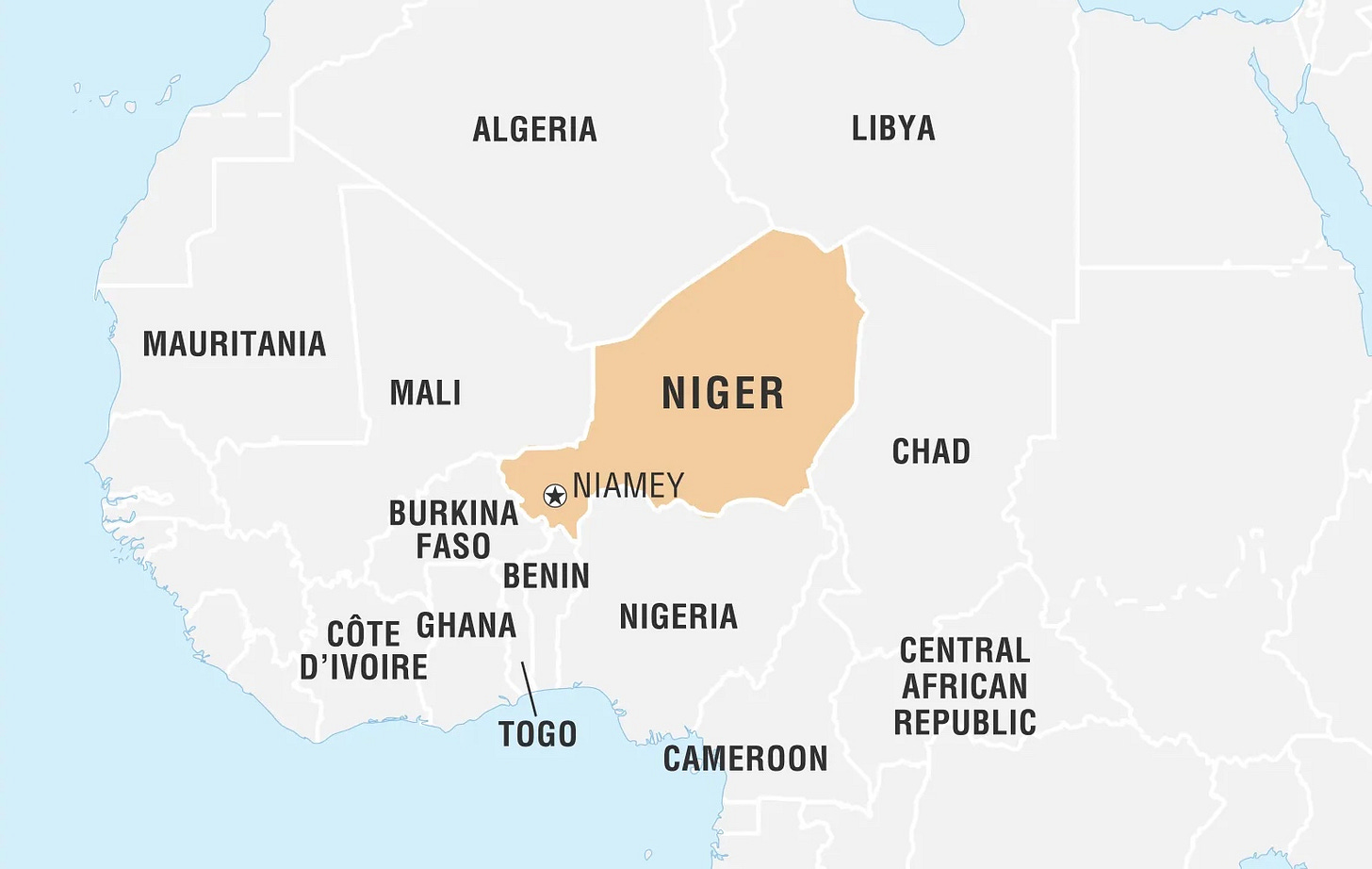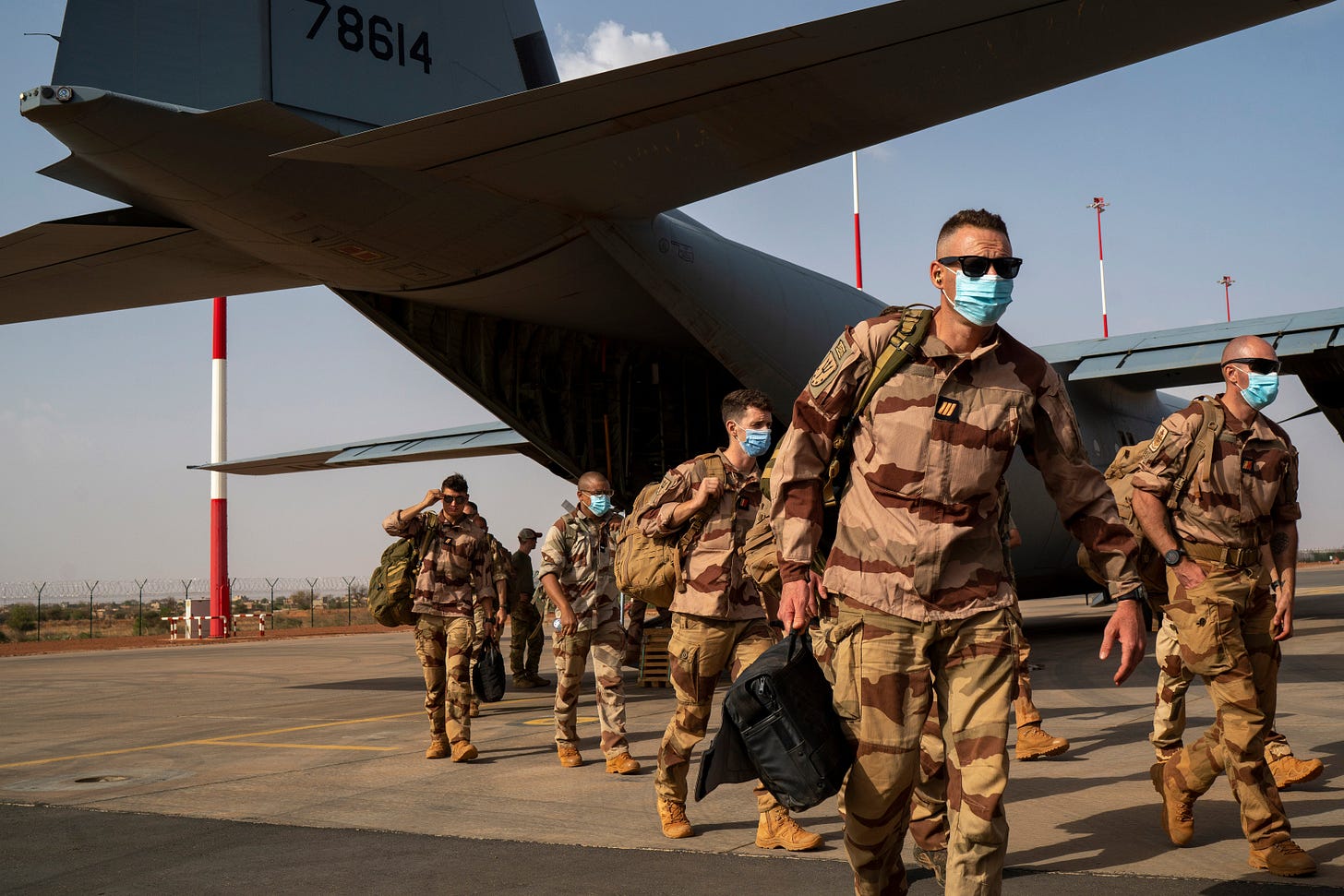Why The U.S. Decision To Withdraw From Niger Is Rather A Smart Move
If anything, the history of U.S. foreign interventions has shown that overstaying its welcome often leads to catastrophic consequences.
The northern city of Agadez, at about a 1000 km from the capital Niamey, has been notorious in recent years as a major transit point for West African migrants heading to Libya and Europe, with ruthless networks of smugglers operating from within its walls.
But just in case you are wondering what might possibly be of interest in this region for the United States, you’ve got to know that there's more to Agadez—and Niger, for that matter—than meets the eye.
The U.S. withdrawal is a tacit recognition that foreign military interventions, no matter how well-intentioned, often fail to address the root causes of instability and can even exacerbate the problem.
Uranium
Agadez is part of a region known for its uranium mining operations, and uranium is exactly one of many reasons why Niger is strategic enough both for the U.S. and France, the country's former colonial power.
Over the last 10 years, Niger has supplied around 20% of the total uranium imported by France, which relies on other major sources including Kazakhstan (27%) and Uzbekistan (19%) to make up for the shortfall.
France has heavily invested in the country's uranium mining sector and its influence there is a reminder of its once sprawling colonial empire in Africa. But what about the U.S., then?
Back in Bush’s America, Niger had become entangled in the saga of the Iraq War, as the Bush Administration sought to link it with Saddam Hussein, with the now debunked whispers that it supplied some uranium that Saddam Hussein might have used to manufacture weapons of mass destruction.
That incident, which had led to a scandal that resulted in the outing of a CIA agent, was ultimately exposed as part of the web of fabrications that was necessary to support America's case for war.
That was in the noughties—in 2002. Today, Niger is still obviously within America’s radar. And for what? Well, the U.S. wouldn't tolerate the prospect of any of those so-called rogue nations, including Iran, sourcing uranium from Niger on their way to securing the nuclear weapon.
As it were, for Washington, keeping a close eye on Niger is good strategy. And the opportunity for close scrutiny presented itself in the wake of the Arab Spring and the havoc it wreaked in Libya.
As weapons from Gaddafi's arsenals fuelled extremist insurgency in the Sahel, Washington first joined France in setting up a military foothold in the country, beginning in 2013.
Initially, a small contingent of American troops was based at the airport of Niamey. Then in 2016, America spent more than $100 million to build Airbase 201 in Agadez.
The initial number of 940 soldiers was bumped up to 1,100. Officially, they were part of counterterrorism efforts and all aerial surveillance by the drones they operated came under a strategy to contain (if not defeat) the violent Islamist insurgency in the region.
For as long as Niger had been under civilian rule, the arrangement worked fine, and no questions were asked. But all of that changed in July 2023, when a junta overthrew the president and assumed power.
All Change, please
Weeks of mass street protests sent a clear signal to France and ECOWAS that a military intervention would be against the will of the apparent majority. ECOWAS backed down and the junta scored a point.
And here's what happened: On 26 July 2023, Niger's presidential guard moved to detain President Mohamed Bazoum, causing a situation of confusion that would last for days.
In the end, the commander of the presidential guard, General Abdourahamane Tchiani, proclaimed himself the leader of a new military junta. Analysts cite Bazoum's plans to replace the head of the presidential guard, as a potential trigger for the coup.
But there were also reported disputes between Bazoum and the military over Niger's stance on ECOWAS' position against military juntas in the region, namely in Mali and Burkina Faso.
Western nations including the United States condemned the coup, but America was less vocal than France whose interests seemed to have been rather well looked after under Bazoum.
With the French president Emmanuel Macron onboard, ECOWAS threatened military intervention against the junta, prompting Burkina Faso, Guinea, and Mali to express support for the coup as they refused to implement regional economic sanctions.
The popular perception that the ousted president was a Western puppet grew in the face of France's hostile rhetoric and the junta gained more and more sympathy from the population.
Weeks of mass street protests sent a clear signal to France and ECOWAS that a military intervention would be against the will of the apparent majority. ECOWAS backed down and the junta scored a point.
Its first major decision was to order the French troops out of the country. After an initial resistance, France withdrew its soldiers four months ago and redeployed them to neighboring Chad.
Until then, the junta seemed to have no problem with America. But then, the State Department began to pressure the military leader for an electoral timeline.
Rising diplomatic tension led to the disclosure of a so-called secret document the Americans had signed with the ousted president, to the effect that Niger's officials should stay away from snooping around what the American troops are up to.
It all came to head in March, when—using the same playbook that served against France—the junta asked the U.S. to vacate and leave. Just like France, the initial response of the U.S. was to dismiss the request. So, what happened and why the U.S. seems to have flipped their position?
A Smart Move
The announced withdrawal of the U.S. troops from Niger was the result of extensive negotiations between the U.S. government and the junta.
According to sources familiar with the discussions, the two parties reached an agreement that outlines a phased withdrawal over the next 6-12 months.
The negotiations were reportedly marked by a spirit of mutual understanding and respect for Niger's sovereignty.
Yes, sovereignty is a key policy point of the military leaders. The junta has made it clear that they wanted to assert more control over the country's security affairs.
The U.S. ultimately seems to agree that leaving would be the best path forward for both nations.
And so, in the face of it, the planned withdrawal shows that officials in Washington, for once, have learnt to listen to the concerns of locals. And this appears to be a smart move that could help rebuild trust and pave the way for a more sustainable partnership between the two countries.
In any event, Niger is not an isolated case. Niger's yearning for effective full control is a sentiment that's shared in neighbouring Mali and Burkina Faso.
As such, the American decision comes against this backdrop of a changing political landscape, where mass protests—which used to be against supposedly illegitimate heads of States—are today in their favour.
Wouldn’t it be hard to insist on dismissing the legitimacy of the junta when the overwhelming majority of Niger's young population support them and their desire for more control?
At any rate, the junta's policy of prioritising national sovereignty resonates with the growing sentiment among the local population that democracy, as pushed by the West over the last 30 years in the region, has so far been a facade to maintain foreign control through corrupt governments.
Be that as it may, the history of U.S. foreign involvements, particularly in Afghanistan, Somalia, Iraq, and Libya, has shown that military bullying often leads to unintended, catastrophic consequences.
By listening up in Niger, Washington—if anything—appears to uphold the principles of the sovereignty of independent nations as per the UN Charter that it claims to champion.
Sure, the US—the world's superpower—could have chosen to stick to its old ways. But this gesture of goodwill challenges America to approach diplomatic disagreements from a different perspective than that of systematic bullying.
In that sense, the outcome of the talks with Niger is a tacit recognition that foreign military involvements, no matter how well-intentioned, often fail to address the root causes of instability and can even exacerbate the problem.
That was certainly true in Afghanistan and Iraq and it would probably be true in the Sahel if the U.S.—or any other foreign power—insists on pushing its own agenda in a total disregard of local protests.







